#plus men revolution
Explore tagged Tumblr posts
Text

FINALLY BEATING MY SHIT TASTE IN MEN ALLEGATIONS YAHOOO (I said as I draw Rin Setsu A/ Lin Xue Ya)
#thunderbolt fantasy#lang wu yao#fanart#rou fu you#tbf#wuxia fantasy puppet epic#nitro plus#digital art#nitro plus men once again holding me hostage#tm revolution
56 notes
·
View notes
Text

I feel that one of the most overlooked aspects of studying the French Revolution is that, in 18th-century France, most people did not speak French. Yes, you read that correctly.
On 26 Prairial, Year II (14 June 1794), Abbé Henri Grégoire (1) stood before the Convention and delivered a report called The Report on the Necessity and Means of Annihilating Dialects and Universalising the Use of the French Language(2). This report, the culmination of a survey initiated four years earlier, sought to assess the state of languages in France. In 1790, Grégoire sent a 43-question survey to 49 informants across the departments, asking questions like: "Is the use of the French language universal in your area?" "Are one or more dialects spoken here?" and "What would be the religious and political impact of completely eradicating this dialect?"
The results were staggering. According to Grégoire's report:
“One can state without exaggeration that at least six million French people, especially in rural areas, do not know the national language; an equal number are more or less incapable of holding a sustained conversation; and, in the final analysis, those who speak it purely do not exceed three million; likely, even fewer write it correctly.” (3)
Considering that France’s population at the time was around 27 million, Grégoire’s assertion that 12 million people could barely hold a conversation in French is astonishing. This effectively meant that about 40% of the population couldn't communicate with the remaining 60%.
Now, it’s worth noting that Grégoire’s survey was heavily biased. His 49 informants (4) were educated men—clergy, lawyers, and doctors—likely sympathetic to his political views. Plus, the survey barely covered regions where dialects were close to standard French (the langue d’oïl areas) and focused heavily on the south and peripheral areas like Brittany, Flanders, and Alsace, where linguistic diversity was high.
Still, even if the numbers were inflated, the takeaway stands: a massive portion of France did not speak Standard French. “But surely,” you might ask, “they could understand each other somewhat, right? How different could those dialects really be?” Well, let’s put it this way: if Barère and Robespierre went to lunch and spoke in their regional dialects—Gascon and Picard, respectively—it wouldn’t be much of a conversation.
The linguistic make-up of France in 1790
The notion that barely anyone spoke French wasn’t new in the 1790s. The Ancien Régime had wrestled with it for centuries. The Ordinance of Villers-Cotterêts, issued in 1539, mandated the use of French in legal proceedings, banning Latin and various dialects. In the 17th and 18th centuries, numerous royal edicts enforced French in newly conquered provinces. The founding of the Académie Française in 1634 furthered this control, as the Académie aimed to standardise French, cementing its status as the kingdom's official language.
Despite these efforts, Grégoire tells us that 40% of the population could barely speak a word of French. So, if they didn’t speak French, what did they speak? Let’s take a look.
In 1790, the old provinces of the Ancien Régime were disbanded, and 83 departments named after mountains and rivers took their place. These 83 departments provide a good illustration of the incredibly diverse linguistic make-up of France.


Langue d’oïl dialects dominated the north and centre, spoken in 44 out of the 83 departments (53%). These included Picard, Norman, Champenois, Burgundian, and others—dialects sharing roots in Old French. In the south, however, the Occitan language group took over, with dialects like Languedocien, Provençal, Gascon, Limousin, and Auvergnat, making up 28 departments (34%).
Beyond these main groups, three departments in Brittany spoke Breton, a Celtic language (4%), while Alsatian and German dialects were prevalent along the eastern border (another 4%). Basque was spoken in Basses-Pyrénées, Catalan in Pyrénées-Orientales, and Corsican in the Corse department.
From a government’s perspective, this was a bit of a nightmare.
Why is linguistic diversity a governmental nightmare?
In one word: communication—or the lack of it. Try running a country when half of it doesn’t know what you’re saying.
Now, in more academic terms...
Standardising a language usually serves two main purposes: functional efficiency and national identity. Functional efficiency is self-evident. Just as with the adoption of the metric system, suppressing linguistic variation was supposed to make communication easier, reducing costly misunderstandings.
That being said, the Revolution, at first, tried to embrace linguistic diversity. After all, Standard French was, frankly, “the King’s French” and thus intrinsically elitist—available only to those who had the money to learn it. In January 1790, the deputy François-Joseph Bouchette proposed that the National Assembly publish decrees in every language spoken across France. His reasoning? “Thus, everyone will be free to read and write in the language they prefer.”
A lovely idea, but it didn’t last long. While they made some headway in translating important decrees, they soon realised that translating everything into every dialect was expensive. On top of that, finding translators for obscure dialects was its own nightmare. And so, the Republic’s brief flirtation with multilingualism was shut down rather unceremoniously.
Now, on to the more fascinating reason for linguistic standardisation: national identity.
Language and Nation
One of the major shifts during the French Revolution was in the concept of nationhood. Today, there are many ideas about what a nation is (personally, I lean towards Benedict Anderson’s definition of a nation as an “imagined community”), but definitions aside, what’s clear is that the Revolution brought a seismic change in the notion of French identity. Under the Ancien Régime, the French nation was defined as a collective that owed allegiance to the king: “One faith, one law, one king.” But after 1789, a nation became something you were meant to want to belong to. That was problematic.
Now, imagine being a peasant in the newly-created department of Vendée. (Hello, Jacques!) Between tending crops and trying to avoid trouble, Jacques hasn’t spent much time pondering his national identity. Vendéen? Well, that’s just a random name some guy in Paris gave his region. French? Unlikely—he has as much in common with Gascons as he does with the English. A subject of the King? He probably couldn’t name which king.
So, what’s left? Jacques is probably thinking about what is around him: family ties and language. It's no coincidence that the ‘brigands’ in the Vendée organised around their parishes— that’s where their identity lay.
The Revolutionary Government knew this. The monarchy had understood it too and managed to use Catholicism to legitimise their rule. The Republic didn't have such a luxury. As such, the revolutionary government found itself with the impossible task of convincing Jacques he was, in fact, French.
How to do that? Step one: ensure Jacques can actually understand them. How to accomplish that? Naturally, by teaching him.
Language Education during the Revolution
Under the Ancien Régime, education varied wildly by class, and literacy rates were abysmal. Most commoners received basic literacy from parish and Jesuit schools, while the wealthy enjoyed private tutors. In 1791, Charles-Maurice de Talleyrand (5) presented a report on education to the Constituent Assembly (6), remarking:
“A striking peculiarity of the state from which we have freed ourselves is undoubtedly that the national language, which daily extends its conquests beyond France’s borders, remains inaccessible to so many of its inhabitants." (7)
He then proposed a solution:
“Primary schools will end this inequality: the language of the Constitution and laws will be taught to all; this multitude of corrupt dialects, the last vestige of feudalism, will be compelled to disappear: circumstances demand it." (8)
A sensible plan in theory, and it garnered support from various Assembly members, Condorcet chief among them (which is always a good sign).
But, France went to war with most of Europe in 1792, making linguistic diversity both inconvenient and dangerous. Paranoia grew daily, and ensuring the government’s communications were understood by every citizen became essential. The reverse, ensuring they could understand every citizen, was equally pressing. Since education required time and money—two things the First Republic didn’t have—repression quickly became Plan B.
The War on Patois
This repression of regional languages was driven by more than abstract notions of nation-building; it was a matter of survival. After all, if Jacques the peasant didn’t see himself as French and wasn’t loyal to those shadowy figures in Paris, who would he turn to? The local lord, who spoke his dialect and whose land his family had worked for generations.
Faced with internal and external threats, the revolutionary government viewed linguistic unity as essential to the Republic’s survival. From 1793 onwards, language policy became increasingly repressive, targeting regional dialects as symbols of counter-revolution and federalist resistance. Bertrand Barère spearheaded this campaign, famously saying:
“Federalism and superstition speak Breton; emigration and hatred of the Republic speak German; counter-revolution speaks Italian, and fanaticism speaks Basque. Let us break these instruments of harm and error... Among a free people, the language must be one and the same for all.”
This, combined with Grégoire’s report, led to the Décret du 8 Pluviôse 1794, which mandated French-speaking teachers in every rural commune of departments where Breton, Italian, Basque, and German were the main languages.
Did it work? Hardly. The idea of linguistic standardisation through education was sound in principle, but France was broke, and schools cost money. Spoiler alert: France wouldn’t have a free, secular, and compulsory education system until the 1880s.
What it did accomplish, however, was two centuries of stigmatising patois and their speakers...
Notes
(1) Abbe Henri Grégoire was a French Catholic priest, revolutionary, and politician who championed linguistic and social reforms, notably advocating for the eradication of regional dialects to establish French as the national language during the French Revolution.
(2) "Sur la nécessité et les moyens d’anéantir les patois et d’universaliser l’usage de la langue francaise”
(3)On peut assurer sans exagération qu’au moins six millions de Français, sur-tout dans les campagnes, ignorent la langue nationale ; qu’un nombre égal est à-peu-près incapable de soutenir une conversation suivie ; qu’en dernier résultat, le nombre de ceux qui la parlent purement n’excède pas trois millions ; & probablement le nombre de ceux qui l’écrivent correctement est encore moindre.
(4) And, as someone who has done A LOT of statistics in my lifetime, 49 is not an appropriate sample size for a population of 27 million. At a confidence level of 95% and with a margin of error of 5%, he would need a sample size of 384 people. If he wanted to lower the margin of error at 3%, he would need 1,067. In this case, his margin of error is 14%.
That being said, this is a moot point anyway because the sampled population was not reflective of France, so the confidence level of the sample is much lower than 95%, which means the margin of error is much lower because we implicitly accept that his sample does not reflect the actual population.
(5) Yes. That Charles-Maurice de Talleyrand. It’s always him. He’s everywhere. If he hadn’t died in 1838, he’d probably still be part of Macron’s cabinet. Honestly, he’s probably haunting the Élysée as we speak — clearly the man cannot stay away from politics.
(6) For those new to the French Revolution and the First Republic, we usually refer to two legislative bodies, each with unique roles. The National Assembly (1789): formed by the Third Estate to tackle immediate social and economic issues. It later became the Constituent Assembly, drafting the 1791 Constitution and establishing a constitutional monarchy.
(7) Une singularité frappante de l'état dont nous sommes affranchis est sans doute que la langue nationale, qui chaque jour étendait ses conquêtes au-delà des limites de la France, soit restée au milieu de nous inaccessible à un si grand nombre de ses habitants.
(8) Les écoles primaires mettront fin à cette étrange inégalité : la langue de la Constitution et des lois y sera enseignée à tous ; et cette foule de dialectes corrompus, dernier reste de la féodalité, sera contraint de disparaître : la force des choses le commande
(9) Le fédéralisme et la superstition parlent bas-breton; l’émigration et la haine de la République parlent allemand; la contre révolution parle italien et le fanatisme parle basque. Brisons ces instruments de dommage et d’erreur. .. . La monarchie avait des raisons de ressembler a la tour de Babel; dans la démocratie, laisser les citoyens ignorants de la langue nationale, incapables de contréler le pouvoir, cest trahir la patrie, c'est méconnaitre les bienfaits de l'imprimerie, chaque imprimeur étant un instituteur de langue et de législation. . . . Chez un peuple libre la langue doit étre une et la méme pour tous.
(10) Patois means regional dialect in French.
#frev#french revolution#cps#mapping the cps#robespierre#bertrand barere#language diversity#amateurvoltaire's essay ramblings
773 notes
·
View notes
Note
I am absolutely wild and feral over HDM (legit like, daemons fit SO well. I'm watching dunmeshi wondering where Laios' dog went) and super curious if you do plan a sequel or other fics following this AU??
(In reference to the His Dark Materials / Dungeon Meshi fusion fic)
thank you so much for this question I love this question god!!!! Thank you thank you thank you
God sorry about HDM being delayed, I’m going through hell over it at the moment. It’s meant to end a little after the dragon, then a timeskip epilogue, with special coding so that you can read it two different ways, depending on whether you want spoilers for the manga/season 2. (My idea is that you’ll click a button to reveal/hide it, and the spoiler-free epilogue will be like found poetry.)
Firstly, if you or anyone else would like to take the concepts/characters in His Delicious Materials forward for themselves, you must do this. You don’t need my permission (but I’d love a link! so I can read, scream, reblog, comment, link to it, etc. there is also the “inspired by” setting on ao3 so we can link works directly to HDM, forming a collection for anyone who reads one and wants more.) I don’t own any of it! We are all just having fun! YOU can be the sequel you want to see in the world! If your heart feels a way forward, then follow your heart!! A daemon AU is really about revealing character and I find them really inspiring, like adding a whole engine to a story idea.
If I were to write something to follow up, I do know what the sequel WOULD be! It would be a sort of Discworld novel about the slow social revolution occurring in the half-foots as a chain reaction to Bee settling as a weasel, all occurring behind Chilchuck’s oblivious and unhelpful back. Pushed into a sort of bottleneck of sparrow- and mouse-souls, and marginalised to the very edges of society, half-foots are precarious and endangered. Chilchuck is mostly eating a ham sandwich unhelpfully in the foreground, and at the end of the story looks back and sees to his bewilderment that his people have found a way forward (they don’t have a Shire or a Chosen One, but they do have a goddamn functional worker’s union and their own collective dignity.) kind of Discworld-commentary-comedy, kind of a loving argument with Tolkien, kind of Sharpe hostile-and-awkward-protagonist-POV-doesn’t-know-and-wouldn’t-believe-that-his-men-genuinely-love-him, kind of about the experience of parenting, and kind of gently warmly political BUT FUNNY so it would be ok. but feel it would be too much of a stretch of people’s patience and the original materials’s intentions to call it fanfic. Too many OCs needed to carry the weight, too little reference to the other Dungeon Meshi characters, almost too little “payoff” for what would be a full 70k word work. So maybe to let the story breathe, it would be better worked up as original fiction?
(Plus, that is actually an actual novel: if people write their own novels and manga about orc coffeeshops and dnd parties, I could just write my own too: wait but how do you know if you should?)
Anyway, that is an entirely separate kettle of weasels and my own cross to bear! If your heart cries out for a sequel the best way to manifest it in the world is to write it!
If you feel that A Weasel Heart In Defiance feels like it would scratch that itch, here is a bit that is mildly relevant to Dungeon Meshi, which is Chilchuck and Bee starting to work away from home while the girls were still small. You’ll probably see what I mean from it.
About seven of the village children, including his own three, had a snake in a wooden bucket. They didn't look up.
The reappearance of a random guy who functioned mostly as a postal service and occasionally shouted at them about bedtime - in a way that could be easily blanked out if something more interesting was happening - simply could not be expected to compete for attention with a snake in a bucket.
Chilchuck could recognise this on some level, but as his own children ignored him, he felt very hot and angry, in a way that he had never wanted to feel about children, especially his.
Bee, also rigidly pissed off, growled, "Easy, boss."
This was where Chilchuck did the only thing so far that he was proud of, in this day. He did not start shouting, even though his temper was going something like What the fuck, kids, but worse. He stopped, took a minute, and remembered he'd had this whole thing where he'd wanted his kids to love him. He rubbed his nose, said, "Remind me," and his daemon reminded him: "What do we want them to actually do?"
And he said, "The bare minimum fucking acknowledgement would be nice."
And Bee said, "Have we explained that to them? Do they know?"
So Chilchuck and Bee, hot and tired and cross and still on the job apparently, sat down on the ground with the kids and looked in the bucket. The snake, poor bastard, looked very limp and tired. Chilchuck could relate.
After a while, Chilchuck said, "Girls?"
Or more accurately, something like, "Girls! Girls. Meifleurpatti-I mean Puck-PUCK. Listen up. Mei! Fleur, I'm talking - thanks Fleur - Puck. (Ryeland, stop the baby.) PUCK. Mei, Fleur, Puck - PUCK, eyes on me - thanks, Ryeland - PUCK. EYES," which condensed in parent-speak to a single roar of "Girls!"
When he had them more or less listening, he remembered to set his voice to the more singsong cadence one used for children, instead off the deeper version of his natural voice that he used for shouting at the top of his abilities at tall people; making the choice to be patient and gentle, or at least pretend to be someone who was; and in this manner he said reasonably, "Now, your dad's been away for a very long time and missed you all very much. What do you say? What do you say when your dad comes home?"
Six children stared at him blankly, and the baby toppled gently into the bucket. He fished it out, stuck it sideways under his arm, allowed the snake to escape in the confusion, acknowledged someone's grievously injured finger, stopped Fleur from pinching, took out his pocket handkerchief and wiped Puck's nose in essentially one continuous motion.
To be completely fair, now that he'd let go of the initial anger, he could see that the kids had absolutely no idea what he'd wanted of them. Kids had practically no social instincts at the best of times. Chilchuck coming home was remarkable, sure, but beyond their influence; how were they supposed to react? What do you say to a comet? What do you say to a hailstorm? What do you say when daddy comes home?
He repeated the question, as the children had universally drawn blanks and devolved into staring vacantly.
"Good morning, Daddy!" A child chirped helpfully, setting off the rest in an automatic drone of "good morning, Daddy," in the strangely universal dreary tone of all children saying that.
"So close, Fernwise! Is it morning? What else do we think?"
Bee, fighting for order among the kit-daemons, was simultaneously washing Fleurtom's daemon, Pantoufle's, face; receiving a long rambling report of a grievance from three incoherent witnesses; and minding the baby's chick-daemon; up to her ears in parenting. She said, around a mouthful of Pan, "Speed it up, boss, you're losing them."
"Where are your spots, Daddy?" Pan asked him. He was in the form of a young ferret and scrabbled against his mother's grip on his scruff.
"My what?"
"Your freckles," Bee said grimly, and seeing he'd been temporarily disarmed - and being a valiant beast in her way - charged in to her human's defense, "Is that nice, Pan? We don't want to make people feel bad about their looks, do we?"
"Yes we do," said Fleur.
"Fleur! We've just - we haven't seen much of the sun, that's all," said Bee, taking charge, the best and most loyal soul a man could have. "They'll come back, and they're not spots."
"Mei has spots."
"Freckles."
"Grimbob has spots."
"Yes, and you shouldn't notice," Bee said. "Think of Grimbob's feelings."
"I do, I think he feels spotty."
"I'm thirsty," Puck said flatly.
"Stick to the point, kids," Chilchuck said, recovering from the fact that his usual face was apparently indistinguishable to children from Grimbob's, who had been taking puberty hard. This was surprisingly difficult to do.
Ryeland, a mildly bright spark who was older than the Chils girls, connected two dots and suddenly roared "WELCOME HOME DADDY," so six children all repeated that automatically, and Fleur added sunnily, "I missed you Daddy!"
And just as a very small piece of Chilchuck's heart was finally allowed to melt, she added, equally sunnily, "Mei didn't."
"I did a little," Meijack said vaguely.
"That's great kids, well done, we got there in the end," Chilchuck said. "Remember it for next time, okay? It makes Daddy feel better about his stupid life. Now, next time, let's remember that it's traditional to do a hug."
He realised his mistake instantly, as six children and their daemons all bore him - and the baby he'd forgotten he was holding - to the ground.
___________
#a weasel heart raised in defiance#his delicious materials#daemon AUs#like you see it right that’s not dungeon meshi but it IS definitely a thing that happens raising kids
162 notes
·
View notes
Text
Thank you, Elisabeth Le Bas!
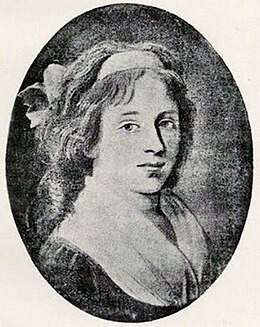
Thank you for these touching memoirs. Her modesty also moved me, as she is clearly one of those women behind the scenes who encouraged their revolutionary husbands, who would not have been as effective without them. She possesses an extraordinary strength of character and integrity that many men should have been inspired by instead of placing their individual interests first. The revolution could have been saved (no need to specify who I am targeting here). Although her memoirs may at first seem to portray a woman who simply supports those she loves, it is actually much deeper than that. She attended political debates with Charlotte Robespierre, showing that they were far more politically engaged than they appeared. By the way, I have a theory about Philippe Le Bas based on an excerpt from Elisabeth Le Bas:
"It was the day when Marat was borne in triumph to the Assembly that I saw my beloved Philippe Le Bas for the first time.
I found myself, that day, at the National Convention with Charlotte Robespierre. Le Bas came to greet her; he stayed with us for a long time and asked who I was. Charlotte told him that I was one of her elder brother’s host’s daughters. He asked her a few questions about my family; he asked Charlotte if we came to the Assembly often, and said that on a particular day there would be a rather interesting session. He urged her to come to it."
I haven’t found any evidence that Le Bas defended the rights of womens citizens (I hope I’m wrong because I really like him as a revolutionary, so feel free to correct me). Yet, I have no valid reason to doubt what he said to Charlotte Robespierre about encouraging these two women to attend a session of the Assembly. I get the impression that Le Bas was one of those men who valued women’s political opinions, had no problem with them attending political sessions, but didn’t see the point of them participating more actively in political life. I imagine he had no objections to discussing it privately with Elisabeth.
Philippe and Elisabeth Le Bas form such a touching couple (I almost applauded when they were finally able to marry), and I really liked that, together with Henriette Le Bas (another woman who is too unknown in the revolution, but fortunately Tumblr is here to bring them out of the shadows), she accompanied her husband and Saint-Just (she was one of the many women who accompanied the revolutionaries on their missions, like Charlotte Robespierre, Sophie Momoro, etc.).
I also really appreciated the relationship she had with Eleonore Duplay, where we also see the courage of her sister in adversity. Paradoxically, it’s in Elisabeth Le Bas’s memoirs that I began to appreciate Charlotte Robespierre. Charlotte Robespierre’s memoirs contain quite a few inaccuracies, as other Tumblr users have pointed out, and I thought to myself, it’s impossible, she’s way too “saintly,” I don’t believe it for a second (not to mention that she comes across as too apolitical, but I imagine those who helped write the memoirs didn’t want a thinking woman). Here, thanks to certain passages from Elisabeth and what we know from the Mathons, we have proof that she is certainly not a saint (no one is), but she’s not a heartless, toxic, or selfish woman as I’ve seen (not on Tumblr but on other forums, where they oddly bash Robespierre but blame Charlotte for disowning her brother; those who say these things are inconsistent, plus I’d like to see how they would have reacted if they had faced the same threat as Charlotte). She is a woman with touching qualities (like her kindness towards Elisabeth, her desire to accompany her brother on a mission, when she designated Mademoiselle Mathon as her heir, or that at the end of her life, she wanted to rehabilitate her brothers) but also with weaknesses (I would start with her completely inaccurate memoirs, I think the disagreement between Madame Duplay, Eleonore, and Charlotte involved shared faults, just like the dispute between Augustin and Charlotte, especially the letter Augustin wrote to Maximilien about Charlotte, etc.). Thanks to Elisabeth Le Bas’s memoirs, Charlotte Robespierre is neither a monster nor a too-perfect being, she is just a human being. By the way, I don’t blame her for disowning her family name and her brothers temporarily because the danger could have been real. She was a civilian who didn’t seek trouble, and in that respect, it was trouble (more precisely, the Thermidorians) that came to her. I also don’t blame her for asking Bonaparte for a pension and continuing to receive one under Louis XVIII because life for a single woman was very hard at that time. It took extraordinary strength of character to avoid doing all that, and not many people had it. Where I do criticize Charlotte Robespierre is for embellishing the reality concerning her in her memoirs.But it was very sad that she was not able to reconcile with her brothers especially Augustin before she died because none of them seem toxic to me. If France and the revolution had no longer been in danger, if they had survived, I think they would have reconciled, but I can't speak for them.
Returning to Elisabeth’s memoirs, I smiled when she idealized the revolutionaries she was close to, like the Robespierre brothers or Saint-Just, although after recognizing many of his qualities, she said he could sometimes be severe due to his great love for the country and the revolution. But it’s normal that she idealized them and defended them loyally because she was simply being loyal to the revolutionary struggles they were leading and in which she believed, even though it would have been good to see their flaws in her memoirs. Memoirs are always subjective, even from an honest person like Elisabeth Le Bas. Despite everything, she is attached to her country and is capable of making a judgment when she says in the excerpt, “Nevertheless, he needed to leave; Robespierre, who had great confidence in Le Bas because he knew his wise and prudent character well, had chosen him to accompany Saint-Just, whose burning love of the patrie sometimes led to too much severity, and who had a tendency to get carried away.” On the other hand, what troubles me about this statement is that normally, a person is not sent on a mission based on the will of just one other person; it usually requires the majority of votes within the CPS or the CSG (sometimes in the Convention). But we see that Elisabeth stays in the background yet makes a thoughtful political judgment to better safeguard the endangered French Revolution.
However, I didn’t like that Elisabeth constantly put herself down by describing herself as scatterbrained when everything indicated that she was not. I was saddened by the tragic fate of Philippe Le Bas, even though we all knew it was inevitable. At least they were able to say goodbye. At least he died before seeing the tragic outcome of the revolution. I found Madame Duplay’s death unfair. Poor Duplay family, who went through one tragedy after another but found the strength to bounce back. I admired Eleonore for helping Elisabeth during her most tragic moments in prison. I applauded when Elisabeth Le Bas showed astonishing courage in front of her adversaries from prison to her release. She never asked for anything and displayed extraordinary strength.
Even though I wouldn’t have blamed her for abandoning the revolution to survive with her son in such difficult times, she didn’t do it, whereas some “revolutionaries” greedy for their wallets destroyed the revolution, endangered France, and undermined the revolutionary people's efforts for social progress that had begun since 1789. The obligation of loyalty to the revolution that deputies like Fouché, Barras, or a general named Bonaparte should have respected was found in the daughter and wife of an authentic revolutionary (especially in the worst moments). Honor to her (and to the many men and women like Elisabeth) and shame on all those greedy ones (I must admit that my language is blunt and could be more nuanced if making a historical judgment, but I’m more in the realm of value judgment, so I feel I can allow myself some liberties, sorry for the fans of theses characters it's only my view).
On a more positive note, thank you, Elisabeth Le Bas, for fighting against this all-too-common black legend of the revolution through your memoirs.
Thank you for your journey as a fighter. If only the greedy deputies I mentioned earlier had a quarter of your integrity and courage and remembered that they were there to serve the people, as they are in their positions solely because of the people and thanks to them, the revolution would surely have lasted longer.
Thank you, Elisabeth, for all you did with so many others. May your life serve as an example and a source of strength for us.
84 notes
·
View notes
Text
Historically, or rather prehistorically, the oppression of women must have arisen out of certain practical arrangements to insure their special biological responsibility: childbearing. The elaborate forms of women's oppression—psychological, political, economic, cultural—all refer back to the biological division of labor. But the fact that women bear children while men do not hardly proves that women and men are fundamentally different. It rather indicates how slim is the basis in "nature" for the supposed difference—whereby women's reproductive physiology is converted into a life-vocation, with its appropriately narrow norms of character and temperament. But even physiological "nature" is not an immutable fact with unchanging consequences. It, too, is part of history—and evolves with history. If the whole difference between women and men ultimately rests on the fact that women are busy bearing children, then the circumstances in which that vocation is exercised have been severely modified: if "nature" has supplied the pretext for women's enslavement, then history now supplies the objective conditions for their social and psychological liberation. For it is just this importance of the physiological difference between women and men which is becoming obsolete.
The Industrial Revolution provided the material base for a reconsideration of slavery; when machines were invented that were more productive and efficient than unpaid labor, it became reasonable to free people from legal bondage to work. Now the Ecological Turning Point (increased longevity, plus the population explosion, plus the rapid depletion of natural resources) makes it not only possible but ultimately imperative that most women be freed from all but the most minimal relation to their biological responsibility. Once the reproductive destiny of women shrinks to two, one, or no pregnancies (with every likelihood that, for the first time in history, almost all children born will live to adulthood), the underlying rationale for the repressive definition of women as servile, domestic, primarily childrearing creatures collapses. As the Industrial Revolution encouraged people to rethink the "naturalness" of slavery, so the new ecological era which the planet entered in the middle of the twentieth century is enabling people to rethink the hitherto self-evident "femininity" of women. The "femininity" of women and the "masculinity" of men are morally defective and historically obsolete conceptions. The liberation of women seems to me as much a historical necessity as the abolition of slavery—like abolition, a hopeless-looking cause before it actually triumphs; even more momentous than abolition in its psychic and historical consequences.
—Susan Sontag, “On Women.”
#susan sontag#feminism#radical feminism#radblr#radfem#socialist feminism#marxist feminism#eco feminism
59 notes
·
View notes
Note
Any suggestions for multi-chapter fics with an alternate meeting and happy ending
So many great fics! I have tried to give you a selection, the first few have a festive theme; then some recent fics; and some old classics. Let me know if you like them! ~Jen
Here is our alternative meeting tab.
A boyfriend for Christmas by @caramelcoffeeaddict CoffeeAddict80
When Kurt takes his 6-year-old nephew, Caleb, to see Santa, he's mortified when Caleb asks Santa to give his Uncle Kurt a new boyfriend for Christmas; Blaine - who is working as one of Santa's helpers - however, is eager to help Caleb get his Christmas wish.
~~~~~
The Christmas Guest by @lilyvandersteen
Kurt goes home for the holidays and finds out a fellow passenger will have no-one to celebrate with, so he invites him to spend Christmas with the Hummel-Hudsons. Somehow, Kurt's family thinks the guy he brought home is his boyfriend. As the days go by, and his Christmas guest proves enchanting in every way, Kurt finds himself wishing they truly were dating. Could his wish come true?
~~~~~~
It's who I'm with by hundredindecisions
In an attempt to make industry connections (and pay rent), Kurt gets a job as a nanny for the daughter of a Broadway producer. When bringing her to a piano lesson one day in December, he meets Blaine Anderson, personal assistant to a famed pianist. (For Klaine Advent 2021)
~~~~~
Leaps and Dives by @annepi-blog
As the 2024 Paris Olympics unfold, gymnast Blaine Anderson and diver Kurt Hummel find themselves navigating more than just their athletic dreams. Blaine, focused on his second chance at Olympic glory, crosses paths with Kurt, a newcomer to the world of professional diving with extraordinary talent. What begins as a chance encounter blossoms into something neither of them expected.
~~~~~
Sonder by @gleefulpoppet
[AU] Kurt is one of the most respected and talked about men in the fashion industry and business world. His app Style•Revolution is the fastest-growing app in history, still rising after three years. Recently, he moved the company to Seattle to be at the heart of the newest technology epicenter in the United States. Yet, with all his success, experience keeps teaching him to be wary of people’s motives who want to be close to him, and he wonders if he’ll be alone forever. Or maybe this city has plans for him that he can’t imagine when his gaze locks with a mysterious, honey-hazel-eyed busker.
~~~~~
Swords and sands by exquisitetragicthing
Ancient Rome AU, 73 years BC.
Blaine and Kurt are enslaved in the same grand villa in Capua, 125 miles south of Rome. Blaine is a renowned gladiator known for his unmatched skill in the arena. Kurt is their master’s treasured body slave and performer. In a time where their love could be as dangerous as the sword, they find themselves instantly and irrevocably drawn to each other.
~~~~~
Crema verse by twobirdsonesong (Main verse plus 65 one shots!)
Kurt’s just landed a job at Vogue as Carrie Bradshaw’s assistant. One of his tasks is to bring her coffee in the morning. Enter Blaine, the barista. This is the story of how they change each other’s lives.
~~~~~
Syrup and Honey By @heartsmadeofbooks
Kurt Hummel is 25 years old when he finds himself being the owner of the bakery he had been dreaming about his whole life, just in time to sweeten up Blaine Anderson's days.
~~~~~
Barking up the wrong bakery by maanorchidee @forabeatofadrum
Kurt is the biggest dog party planner in Los Angeles. When his usual dog bakery cancels on Kurt, he’s in the dire need of a last minute replacement. Luckily, he comes across the Dalton Doggy dog bakery, which is run by Blaine and Cooper Anderson. Cooper’s a mess, but Blaine manages to charm Kurt. Will Kurt be able to keep it professional?
~~~~~
The Symphony verse by Shandyall
Blaine has spent most of his life feeling like the only thing people notice about him is that he stutters. He’s working hard to overcome his (mostly self created) roadblocks when he meets Kurt in an online class the summer after his freshman year of college.
~~~~~~
Westerville Abbey verse by @hkvoyage
Blaine is the second son of the earl of Westerville, and is considered the spare heir. After his 18th birthday, he attends the London Season to fulfill his duty of finding a wife. He soon realizes he is more attracted to the new footman. Kurt, who has just arrived at Westerville Abbey to work alongside his father, becomes equally as smitten with the earl’s youngest son. Will Blaine and Kurt be able to overcome their class differences in 1910s England? Will their forbidden love survive WW1? A Downton Abbey inspired historical Klaine AU.
46 notes
·
View notes
Text
The human names of nations is so interesting to me. It humanizes these immortal cryptid beings. Not even for the mortal people they interact with everyday, but in some ways, for the other nations. Even for humans, names are so frequently intertwined with culture, history, and personal experiences. For a nation, it must go even deeper than that.
"Alfred" for a male America works in my opinion. While he kept his first name, he dose change his last name to Jones at some point during the early stages of the American revolution. I like to think America (both male and nyo) adopted the name from a human whose' name will never be found in a history book, but will always be remembered by their nation. Sorta in-line with him wearing glasses' to look older, I also like playing around with the idea that he added an "F" to his name during the Gilded Age because he thought it made his name look more official on paper. It's also just funny to think it really doesn't stand for anything and that he lets different people think it stands for different names. Today in day-to-day conversations he is simply "Alfred". Matt almost always (plus a few other he's close with) will always refer to him as Al. His aunt can refer to him as Alfie. His uncles often get away loving referring to him as Freddie. They are the only people that can get away with either of those names without getting decked. Ivan will often use them if he's trying to antagonize Alfred. But overall, he is pretty open to nicknames if you and him are on a friendly basis. He's a puddle on the ground when it comes to being called romantic nicknames in/from his partners native language.
For Nyo!America, it is a bit more complicated. I'm very attached to the name Amelia, but can recognize it's not a name that Arthur would have given his daughter in the 1600s. When she was taken in by Arthur, she was christened with the classic name of Elizabeth. Yet it was only Arthur that called her that even in "childhood". Little baby French speaking Matthew called her Lise or the non-Elizabeth nickname of Sissie. While most humans who she was friend's with referred to her as Bet. Because they could Bet on her. Even other humans would nearly always often shorten it to Beth. Pretty much everyone outside of the man who gave her the name could see "Elizabeth" just did not fit her. In my headcanon she was quite a bit more angry and hurt then Alfred was during the revolution. Which, along with already not "loving" the name, caused her to feel no reason not to ditch the names Arthur had given her. Like Alfred, Jones came from a human that she cared about. But this time around, so did Amelia. So up until the 1880s, it was Amelia Jones until, again just like Alfred, she added the "F" to make it Amelia F. Jones.
And as the years went on, Matt says Mel or in moments filled with fear/pain Sissie may slip out. But really outside of him, people don't use nicknames for her. Over the years, since adopting the name, she drew a firm line that she only responds to the United States of America, United States, America in formal settings. Amelia in informal settings. She simply won't respond if someone calls her something else. This mostly has to do, well, with the sexism of being one of only a handful of female nation's and simply being a woman...that exists in this world. A lot of times male nations (as well as human men) would actively use nicknames as a way to talk-down to her or dismiss her abilities. So she begin to refuse to respond to anything but her name
But one of the newest developments in this area is that starting sometime in the 1990s...Arthur was seemingly allowed to start referring to America as Elizabeth again in moments of privacy. First time Matt heard Arthur say "Elizabeth dear, would you pass me the files" he mentally started to prepare for war. The fact America did not even blink or say anything other then "oh yeah, here ya go" changed Matt's understanding of the family dynamic.
#nyo america#hws america#hws england#hws canada#hws ireland#hws scotland#historical hetalia#alfred f jones#Amelia jones#hetalia#hws russia#aph america#aph england#aph canada#aph ireland#aph scotland
117 notes
·
View notes
Text

Mark Yarm: Everybody Loves Our Town: An Oral History of Grunge (2012)
So, so much has been written about the 1990s alternative rock revolution centered in, of all places, the rainy outpost of Seattle, WA, but there's nothing quite like hearing from the people who wrote, played, and promoted the songs that turned the world on its ear.
Mark Yarm (no relation to Mudhoney leader Mark Arm) took it upon himself to collect and contextualize these stories in 2012's Everybody Loves Our Town: An Oral History of Grunge, which, at almost 600 pages, positively bulges with the results of over 250 interviews.
Well, there is a lot to cover, since Yarm starts his investigation in 1980s, post-hardcore America, gradually piecing together the precursors (Green River, the U-Men, the Melvins, Skin Yard, Mother Love Bone, etc.) and the peculiar cultural/musical landscape (including the impact of Sub-Pop and other labels) that eventually nurtured the ideal conditions for grunge's emergence.
Yarm then extensively chronicles the movement's '90s heyday in the words of its biggest stars (Nirvana, Pearl Jam, Soundgarden, Alice in Chains), secondary players (Screaming Trees, Mudhoney, Tad, etc.), AND relative busts (Gruntruck, Truly, Love Battery, etc.), plus tangential participants (the Melvins, Smashing Pumpkins, Hole, etc.) and even satellite movements like riot grrrl (L7, Babes in Toyland, 7 Year Bitch).
In fact, part of me almost hoped that Yarm would wrap up his, errr ... yarn with Cobain's suicide, but he soldiers on to address the Seattle scene's depressing decline and disintegration amid commercial co-opting (Candlebox, Bush, Stone Temple Pilots) and fatalities.
It's a lot to take in, but it's also a reminder that, maybe the most exciting thing about the grunge era, and why its still recalled so fondly by those of us who experienced it in the moment, is that it wiped the popular music slate clean like almost nothing before or after it.
Oh, sure, Britain's punk rock uprising of the late '70s usually claims the same honor (and it obviously influenced many of the artists in this book), but it simply wasn't as commercially and globally pervasive as what happened in Seattle, in 1991.
That's why many observers not incorrectly described '91 as "the year that punk broke through," and why everyone under 30 suddenly considered loading up on long-johns and flannel in order to relocate to the Pacific Northwest.
Featured Records:
Mudhoney: Superfuzz Migmuff EP (1988)
Alice in Chains: Facelift (1990)
Nirvana: Bleach (1989)
Soundgarden: Louder than Love (1989)
Pearl Jam: Ten (1991)
Mother Love Bone: Apple (1990)
Buy from: Amazon
#grunge#seattle#alternative rock#nirvana#pearl jam#mother love bone#mudhoney#Tad#soundgarden#alice in chains#melvins#screaming trees#gruntruck#courtney love#eddie vedder#kurt cobain#chris cornell#laine staley#Hole#smashing pumpkins#green river#l7#candlebox 7 year bitch
19 notes
·
View notes
Text
This Warless Weekend...I accidentally broke the one rule of Warless Weekend sending "Maya Henry is in fact a trans woman lol" to a TERF. Sigh. Forgive me, Velvet Nation.
The post was discovered because I was once again going through radblr looking for screenshots to prove beyond the shadow of the doubt that radfems hate even cis men, let alone trans men. It's going to be a multi-day affair because I want to include so many examples that when you click "read more" it'll be like unraveling an ancient scroll that drops to the floor and rolls down several flights of stairs in a cartoon.
I've also been debating a radfem who's not...the TERFiest? Hard to classify someone who thinks private spaces should be sex-segregated for now but corrects anons who misgender me and believes radfems shouldn't be so hostile to trans women* because they're "allies of the feminist revolution." My only concern is that my (mostly AFAB trans!) followers would see me interacting with someone who has those radfemmy beliefs in a way that isn't pure hostility and be made to feel unsafe as a result. I have no illusions that his radical feminist beliefs are harmful. But am I being too nice, regardless? I've been personally convinced he sincerely holds beliefs that makes other radfems hate him, thus the anon he got misgendering me and saying he should stop talking to me because I'm a homophobe.** Sometimes good people get praxis wrong.
And TRFs will say "ooh, look at Velvet, being courteous to people who self-identify as radfems, she'd never do that for transfems she slanders as TRFs." First of all, I think a lot of non-transfems are TRFs. Secondly, I do do that for TRFs, all the fucking time! As with anyone else when they're not just horribly cruel I do actually go to extreme lengths to be polite, approaching them as a submissive doormat of a person, offering the most politely worded but in-depth critique of their bullshit you could possibly imagine. I've started several posts of such a nature with "please take this in good faith" and at least once I've DM'd someone after reblogging them to go the extra mile assuring them I'm not trying to take a swing at them.
I think talking to people is good and healthy and should be encouraged, idk. That doesn't go for someone who thinks all trans women are monsters who want to abuse Trve Wymbyn, or that all trans men are deluded victims/fetishisers of cis gay men/escaping into privilege.*** Most radfems, like outright conservatives, are 100% bugfuck evil and do not deserve anything other than mockery and scorn. But if there's a chance you might be able to connect with an intellectually and morally honest person who seems to be going for what they truly believe is best for everyone...I think you should go for it.
I desperately want to believe people when it seems like they're really honestly trying out of sincere moral impulses and are truly capable of treating others with respect rather than it being an enemy psyop. I'm trying to not let my fear of being gullible deter me from offering my hand to people when our differences might be bridgeable.
*and other trans people, plus those who are dysphoric but do not consider themselves trans
**I believe they were referring to when I said homosexuality was also an atypical arousal pattern in response to someone pointing at a basic ass furry to say trans people were ridden with paraphilias
***I just realized how diverse the "explanations" for AFAB trans people are. With how much transphobia relies on being offensive to Trve Wymbyn you have to get creative to explain why it's also bad when one of their own contracts the mind virus and it's so obviously completely incoherent
20 notes
·
View notes
Text
you see! the thing is! revolutionary girl utena and the riot grrrl movement actually showed up around the same times, but during the early movement riot grrrl ideology was kind of rocky. it mostly focused on white women and rejecting a general upper/middle class upbringing, plus it has a bad history of excluding trans people and overall sparking a really extremist take on feminism that boils down to replacing the straight white men in power with straight white women that still embody a corrupt system.
the movement has improved itself overtime but the thing is that revolutionary girl utena, for all its flaws that i admit it has, kind of hit the ground running with a take on feminism that was ahead of its time. first of all anthy is a rare instance of a dark skinned character in an anime that isn't drawn like a racist caricature, and also one of the only dark skinned protagonists of that era. (dumb) people can debate that she's a flat character but the truth is that the whole story is for her; it's her life being brought a revolution. no one in rgu is white cuz obviously it takes place in japan, but it still rings true that the story aligns with the complexity of intersectional feminism that benefits to all women today, because what utena thought was empowering to all girls actually harms anthy and so on and so forth; even more so, what utena thinks is empowering her is actually hurting her all the same in the long run, turning her into the man she thinks she's fighting against that want them both crushed under it.
rgu also touched on the fact that putting women in a position of power instead of men wouldn't solve anything, because the system itself is rotten. even more mature of it for its time was that the show had a realistic ending where even after utena dedicated her last moments in the show to trying to free anthy, the coffin still fell away from her reach, and the swords turned on her. to akio this was a failure, and this is how a lot of people see fighting against corrupt systems to end: the system always ultimately wins against the individuals, and people lose hope that change can ever happen. however, utena's beliefs inspired anthy to leave ohtori, and then in the movie you see that the student council is given hope to leave as well. change, revolution, is gradual, but that doesn't make it any less worth it. in a lot of punk media i see this ending where the heroes can alone end the oppression in the movie, but that's just not how it works in real life, but there are moments of victory that inspire others to pick off where they leave off, and a better future is imaginable.
i think finally, in regards to the riot grrrl movement, rgu is way more nuanced with gender. you honestly just have to look at the fans to see that utena's gender expression gave trans people who watched rgu more vocabulary to express themselves. more than that though, i think the show was careful with how it approached both gender and femininity. the prince and the bride are both gendered roles, but masculinity and femininity aren't intrinsically toxic for each other. the show doesn't punish utena for being masc, and likewise even after escaping her role as a rose bride, anthy likes dressing fem. it's the way heteronormativity has made us think of these expressions: that masculinity has to come with aggression, and femininity means subservience. neither is a bad thing for the other, and people should be allowed to present how they want, not how they feel their personality means they have to.
all in all i think revolutionary girl utena is a relic for punks and riot grrrls and it isn't considered as such by a lot of people. the show really was ahead of its time. i hope this was coherent!
#revolutionary girl utena analysis#revolutionary girl utena#shoujo kakumei utena#sku#rgu#rgu utena#rgu anthy#anthy himemiya#utenanthy#utena tenjou#feel free to add stuff or something cuz i get vague when i write essays
115 notes
·
View notes
Text
Reading "One Piece" for the First Time, Part 11: So our gang are hanging out in "every town from an evil Western" ever, and I should be annoyed that the author has put Meme in Progress and Giga Chad to sleep, but... Actually I am a bit annoyed, they're great.
To the surprise of only The Idiot, this town of obviously suspiciously evil people led by a man with a violently dreadful haircut are kind of evil. But this is all a simple excuse to have The Himbo do his thing, and stretch his legs a little. A fair bit of it is "edgy shonen protagonist" stuff, but there's a zany, wacky little sequence involving a ladder straight out of a Buster Keaton movie, so that's always a plus from me, and the art has much improved this time: the author has gotten much better at drawing lunacy. I look forward to when he gives screentime to anyone who isn't the Himbo and the Idiot.
Then he has to go and fucking ruin it by bringing back The Idiot, to do whatever the fuck this bimbling barrel of buffoonery does. The joke could have been great, have him waking up to find that the town of murderous evil-doers are dead, and The Himbo just smoking a cigarette, looking to his freshly fucked blade and going "Was it good for you too?" but alas they hate my brilliant ideas, so we have this.
The gruesome twosome have another Shonen-y fight with some more weirdos, and an utterly bizarre bit where the Idiot is briefly annoyed by The Himbo apparently murdering people: my guy, those blades don't have fucking safety wheels on. Would you be annoyed at The Giga Chad for cooking carrots or Pat Sharp for being a DJ, would you? Stupid question, this character's a fucking moron.
The Cartographer with a brain cell shakes them out of it, as this is all a way to introduce what I assume are our actual villains "The Baroque Works", which seems superfluous since every motherfucker they've tusseled with has had hair like a Dutch Cathedral and outfits like a T-shirt cannon loaded with the wardrobe from "The Fifth Element". Still, the leader is named "Crocodile", and oh god I hope they fight a crocodile. OH I HOPE THE GIGA CHAD EATS A CROCODILE. He'd better eat a crocodile, Ohda, I swear to all that is holy!
Not as much to annoy me in this chapter (no fucking Dracule Mihawk, thank fucking Christ) aside from the giant duck being ready to kill The Idiot but suddenly decided to ride in the different direction because it being infected by his stupidity is the only reason the author could come up with to write his moron out of a corner.
But it didn't annoy me that much. I just want more of Giga Chad, Meme in Progress and the Cartographer with a Brain Cell. It's like dinner with an 8 year old: "No, you can't have more morons until you'd spent time with the current crop of idiots! Now finish your Giga Chad and Meme in Progress!"
The plot about a princess revolution is going to get dropped faster than that cowboy manga I read from this guy's nonce teacher ("Gun Blaze West" sucks so hard guys), so at least they're making progress in the plot...
They're now chatting to a Rodeo Stripper, and really guys? A bit of a step down from otters and duck-riding princesses and men with curly hair cannons in this town alone.
I'm down for Rodeo Strippers though, cowboys and Westerns are my jam.
#Reading One Piece for the First Time#Manga#One Piece#Giga Chad#Himbo#Sanji#Monkey D Luffy#Nami#Idiot#Pat Sharp#Usopp#Meme in Progress#Cartographer with a Brain Cell#Roronoa Zoro
20 notes
·
View notes
Text
Reading update


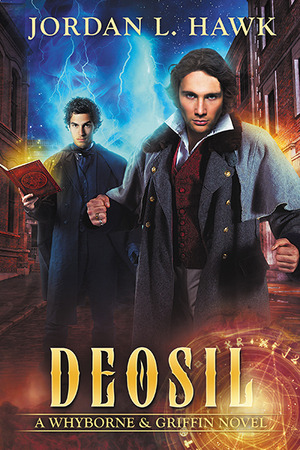




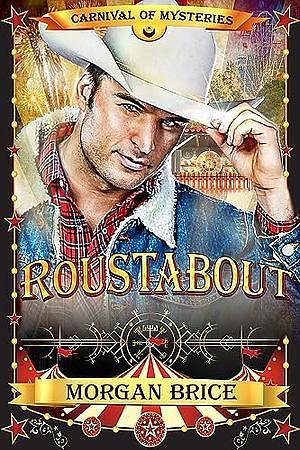
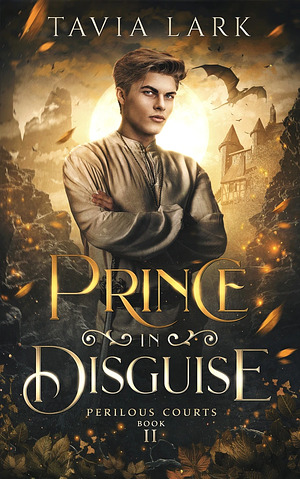
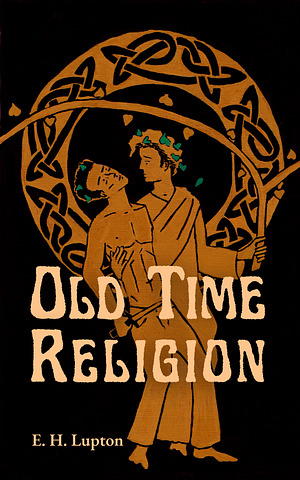
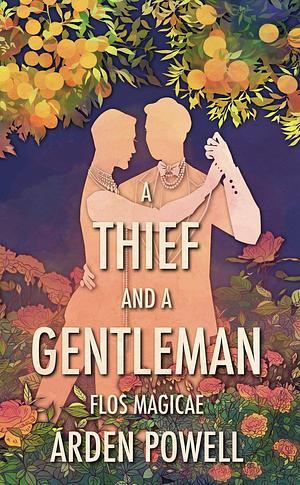
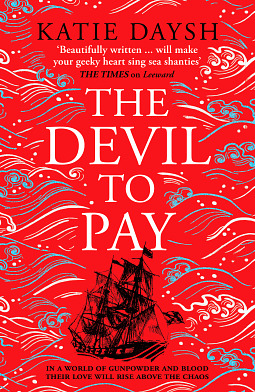

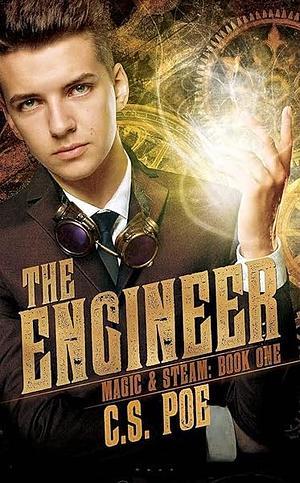
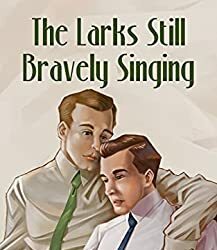

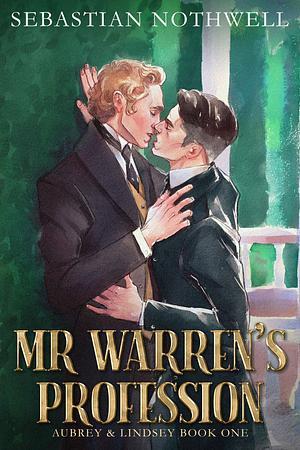
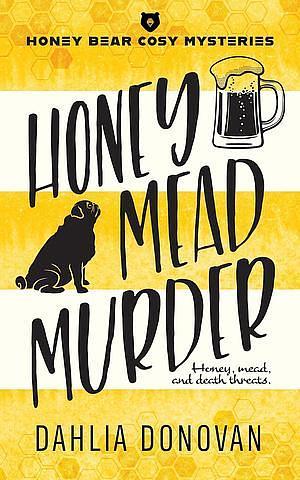
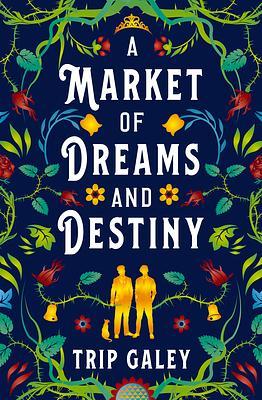
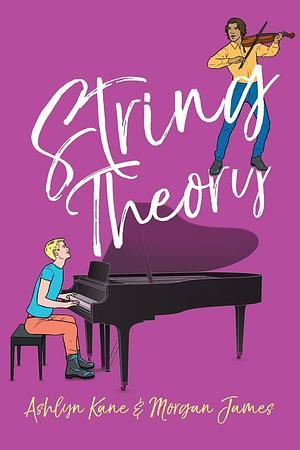
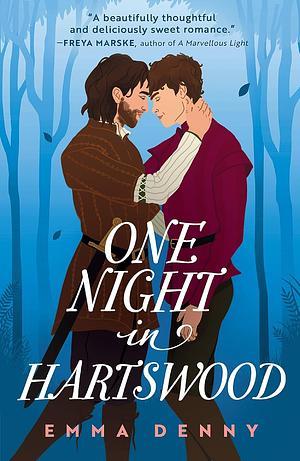

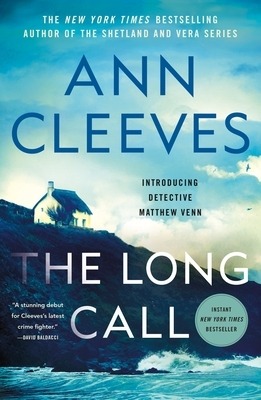
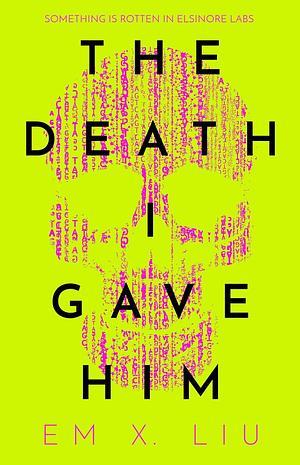
Light Up the Lamp by Kit Oliver - 5/5 stars
Kit Oliver can do no wrong, I guess. I figured I'd like this one a lot given that I loved her other two novels, but hockey books usually aren't five star reads for me. Along comes this book! Unrelentingly lovely, and even though I knew it was going to have an HEA, I still found myself worried that Gil wasn't going to figure shit out.
The Faerie Hounds of York by Arden Powell - 5/5 stars
Gorgeous book that read like a dreamy, dark fairy tale. The first book by Arden Powell I read was really funny, and this was like the complete opposite. Powell has range! This one is sad, but still has a happy ending. If you like Emily Tesh's Greenhollow Duology, I highly recommend this one. They're definitely in the same vein.
Deosil by Jordan L Hawk - 4.75/5 stars
I was SO SAD to get to the end of this series. Whyborne, Griffin, Christine, Iskander, Persephone, Maggie, Niles...I could go on, I love them all. It's hard to say good-bye but they all got a wonderful ending.
The Inside Edge by Ashlyn Kane - 3/5 stars
The Taste of Desert Green by Kim Fielding - 4.25/5 stars
Your Lonely Nights Are Over by Adam Sass - 1/5 stars
Crushed Ice by Ashlyn Kane and Morgan James - 4/5 stars
Roustabout by Morgan Brice - 3/5 stars
Prince in Disguise by Tavia Lark - 5/5 stars
Loved this one just as much as the first in the series. I expected the Draskorans to be...idk, like stereotype fantasy barbarians, so it was extremely refreshing that they weren't.
Old Time Religion by EH Lupton - 5/5 stars
Ahhhhhhhh I love this series!! I really really enjoyed the first book, and I loved this one even more. Really good, really original. I can't recommend this one and Dionysus in Wisconsin enough!
A Thief and a Gentleman by Arden Powell - 3.5/5 stars
The Devil to Pay by Katie Daysh - 4.75/5 stars
If you like Patrick O'Brian but find yourself thinking, surely this could be more gay? Then Katie Daysh's books are for you. This is the second in the series and I was delighted to learn yesterday from her newsletter that she's working on the third, because I definitely am not ready for the series to end! The first book was from Nightingale's POV (there might have been some bits from Courtney's POV? But not many), and this one is entirely from Courtney's. Courtney and Nightingale didn't actually get to spend much time together in this one so I hope they catch more of a break in book 3.
Lord of Eternal Night by Ben Alderson - DNF at pg 6
The Engineer by CS Poe - 4/5 stars
The Larks Still Bravely Singing by Aster Glenn Gray - 5/5 stars
If you're not reading Aster Glenn Gray yet, why not? Why not??? Seriously, if you like Cat Sebastian, PLEASE give Aster Glenn Gray a try. I have yet to read a book by the woman that isn't gorgeous. This book is set right at the tail end of WWI and into the interwar period and is about two young English men who were injured and invalided out of the army. They're both disabled (Robert, the POV character, is missing a leg, and David is missing a hand) and have PTSD.
Also recommended if you like KJ Charles's Will Darling Adventures trilogy. The Larks Still Bravely Singing is just straight historical romance, not romantic suspense, but it deals with similar themes.
Guardians of Dawn: Zhara by S Jae-Jones - DNF at pg 24
Mr Warren's Profession by Sebastian Nothwell - 4.75/5 stars
LOVED this book. I think it's the only historical romance I've read that uses the Industrial Revolution so heavily in the plot, which I really enjoyed. Plus, gorgeous cover.
Honey Mead Murder by Dahlia Donovan - DNF at pg 5
A Market of Dreams and Destiny by Trip Galey - 3.25/5 stars
String Theory by Ashlyn Kane and Morgan James - 3.75/5 stars
One Night in Hartswood by Emma Denny - 5/5 stars
I honestly don't know why, when I received this book in like, November, I didn't immediately put it on the top of my TBR pile. I knew I was going to love it; I was super excited to get my copy. Every time I've shuffled my TBR (like, my actual physical TBR...it's a whole thing...it's actually been mistaken for my full book collection but haha no that's just 200 books I haven't read yet sitting on my stairs...), I've lamented that it's not closer to the top. And then I realized, this is literally my TBR and my own weird fake rules that I've made up about it, so I can actually just pull it from the stack and read it now. So I did!
And yeah, I loved it. So much. Raff and Penn will probably live rent free in my mind forever, not to mention Ash and Lily. I loved the medieval setting (another setting you don't see much in queer historical romance!) and how it really felt like a different world than ours. Plus I'm a sucker for road trip romances. And daddy issues. And horrific scars.
And ugh, the training scenes. The sexual tension. The PINING. Masterfully done. Chef's kiss.
Also we're going to find out who Oliver was, right? RIGHT??? And what happened to Penn's brother?
Out of Touch by Michael Sarais - DNF at pg 7
The Long Call by Ann Cleeves - 4.25/5 stars
Always enjoy a mystery that's well-paced and well-written. I've never actually read anything by Ann Cleeves but I'm going to pick up the rest of this series.
The Death I Gave Him by Em X Liu - DNF at pg 284
#light up the lamp#kit oliver#the faerie hounds of york#arden powell#deosil#jordan l hawk#whyborne and griffin#prince in disguise#tavia lark#old time religion#eh lupton#the devil to pay#katie daysh#the larks still bravely singing#aster glenn gray#mr warren's profession#sebastian nothwell#one night in hartswood#emma denny#the long call#ann cleeves#reading tag
33 notes
·
View notes
Text
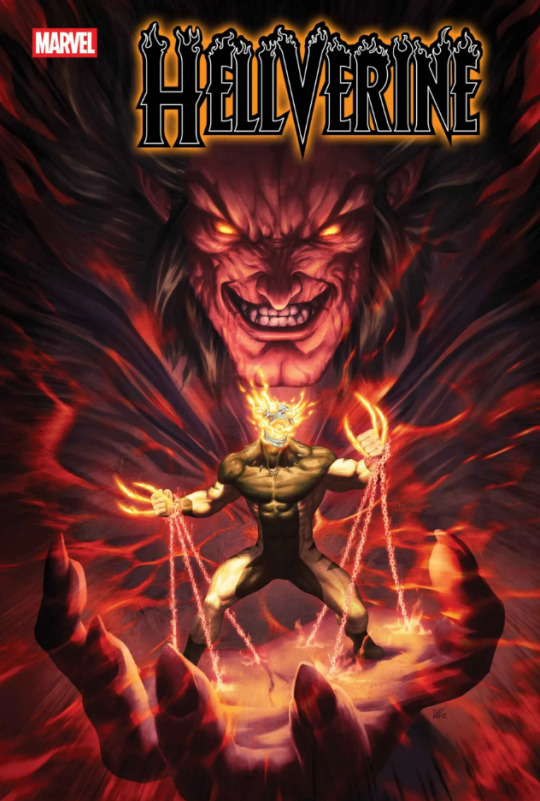
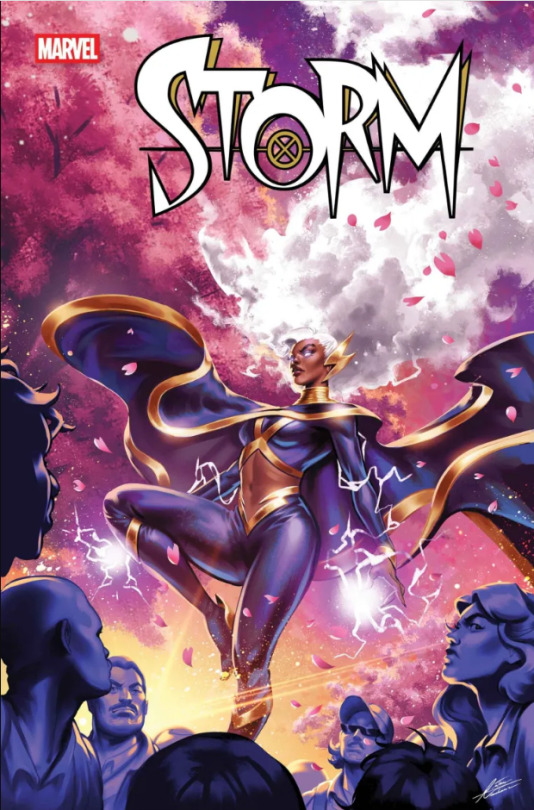
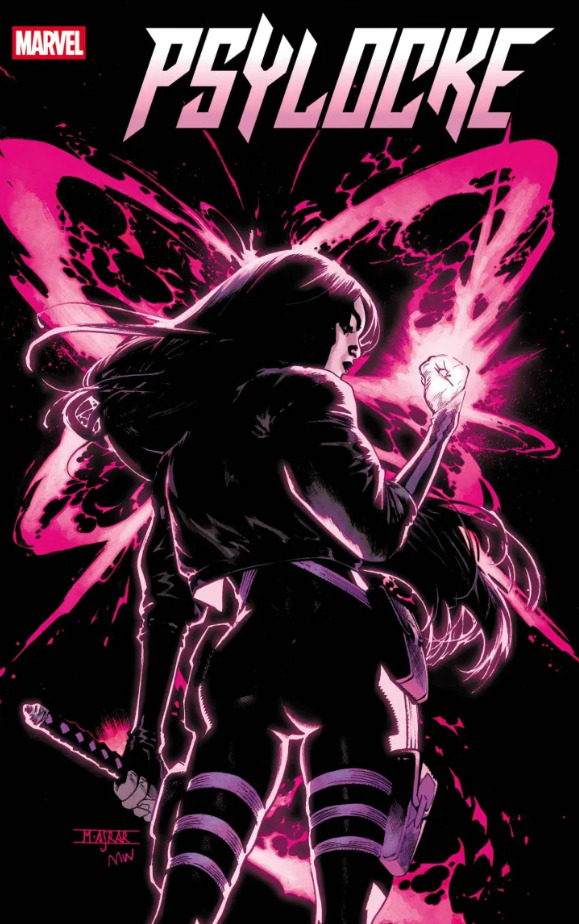

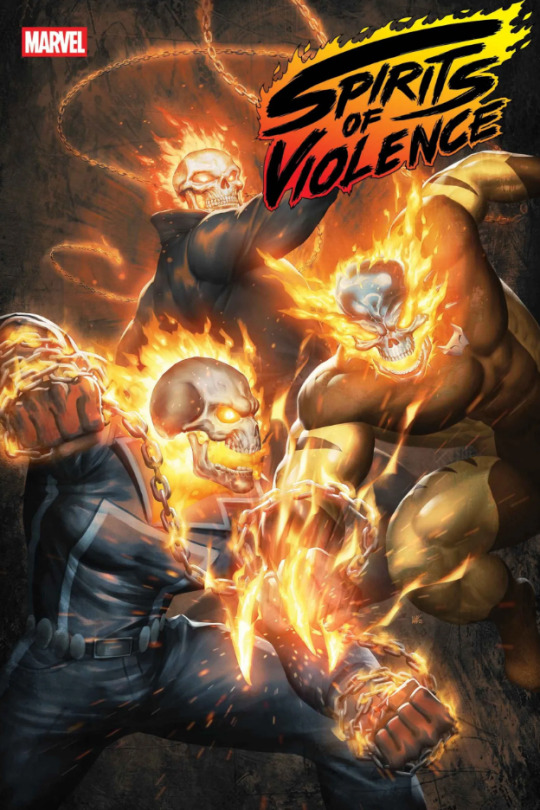

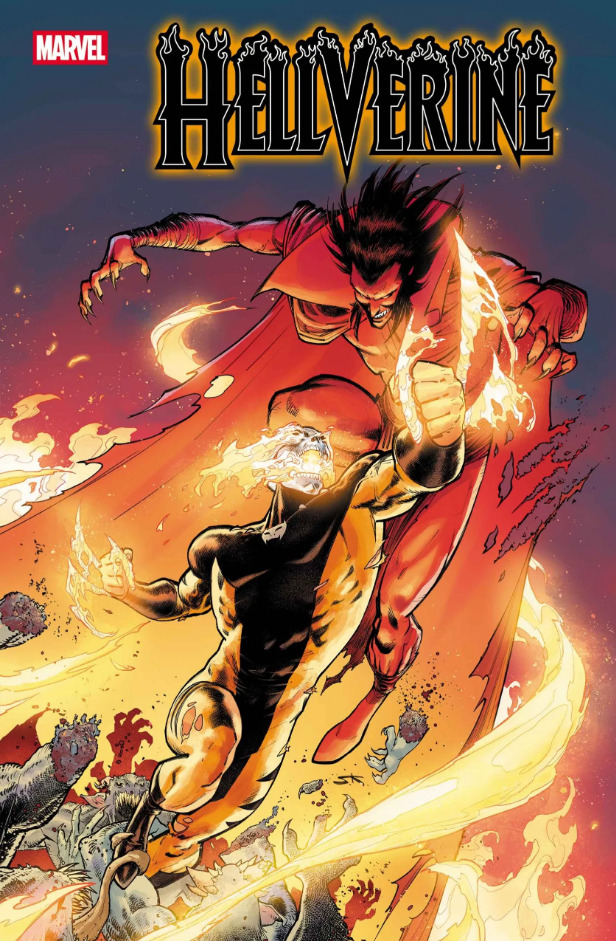
April 2025 Solicits are UP!
source here
Storm #7
Written by Murewa Ayodele, art by Luciano Vecchio, main cover by Mateus Manhanini
"• Fifty years ago, ORORO MUNROE – the iconic STORM – made her debut in GIANT-SIZE X-MEN #1 – thundering her way into our hearts!
• On this day, in her very own solo series, she will host a mix of debuts, reinventions and guest appearances of FIVE legendary thunder gods: THOR, CHAAC, SANGO, MAMARAGAN and SUSANOO!
• But first, a mission to BRAZIL goes horribly wrong. How much more can our hero endure?"
Hellverine #5
Written by Bejamin Percy, art by Raffaele Ienco, main cover by Kendrick "kunkka" Lim
Variant by Sumit Kumar, and variant by David Yardin to be revealed
"MEPHISTO VS. HELLVERINE!
MEPHISTO created the Demon BAGRA-GHUL for his entertainment – and now the demonic lord is not amused by DAKEN turning HELLVERINE against Hell! It’s time for Hellverine to pay…and this devil isn’t making any deals!"
Psylocke #6
written by Alyssa Wong, art by Vincenzo Carratù, main cover by Mahmud Asrar
"• Psylocke is one of the X-Men’s most dangerous and skillful telepaths.
• So why is her own mind the one thing she can’t seem to control?
• Kwannon has begun to accept her past, but are some things better left buried?"
Laura Kinney: Wolverine #5
written by Erica Schultz, art by Giada Belviso, main cover by Elena Casagrande
"HYDRA ATTACK!
• A deranged HYDRA scientist has unleashed his deadly robots, but LAURA KINNEY, THE WOLVERINE, and BUCKY BARNES, THE REVOLUTION, fight metal with metal as the claws, cybernetics and tentacles fly!
• Our heroes have traveled a great distance to stop this threat, but will everyone make it out of this road trip alive?"
Spirits of Violence #2 (of 5)
(turns out it's a mini series, not a oneshot like I thought!!!)
written by Sabir Pirzada, art by Paul Davidson, main cover by Kendrick "kunkka" Lim
"Johnny Blaze and Danny Ketch have learned of the existence of a new and dangerous Spirit! An entity called THE SPIRIT OF VIOLENCE – but as the entity targets the Ghost Riders and those closest to them, will anyone be able to stand in its path? AND WILL THEY SURVIVE?!"
Deadpool #13
written by Cody Ziglar, art by Rogê Antônio, main cover by Taurin Clarke
"THE ROAD TO REVENGE!
• DEATH GRIP killed DEADPOOL – and now that he’s better, WADE is out to return the favor! Armed with a DEADLY NEW WEAPON, his first stop is SOLEM, the mutant who armed Mr. Grip with the MURAMASA BLADE that did him in. Karma time!
• PLUS: A short but crucial guest appearance from WOLVERINE!"
#busy month!#so much going on#comic books#marvel#marvel comics#april 2025 solicitations#comic book solicitations#hellverine#daken akihiro#akihiro#storm#ororo munroe#psylocke#kwannon#wolverine#laura kinney#spirits of violence#ghost rider#deadpool#wade wilson#ellie camacho#solem#bucky barnes#danny ketch#johnny blaze
15 notes
·
View notes
Text


The Goths got away with many proclamations, laws, and raises in taxation in the years they had ruled over the land. While they bled their citizens dry, they used the funds to live a lavish life that starkly contrasted that of the everyday Pendite. Beautiful clothes, handmade furniture, the best ingredients for the most luxurious meals. But most of all to fund their army and prepare to conquer more land. The Goths had ambitious dreams of creating one of the most powerful nations in the world. By force. So, they thought little of how their own citizens viewed them. Just as they did the rest of the world. They especially never even considered that the poor, downtrodden Pendites would revolt against them. How could they when they barely had enough to survive?
But, the Goths underestimated the people of Pendula View. Each day, the revolution grew as more and more villages joined. Farmers, carpenters and bards alike became soldiers training to fight. Old laws like how to dress and curfews were broken. Soon, the refusal of goods and services like crops and housekeeping, and even taxes. It was getting harder to suppress what was happening and The Goths were running out of ideas.
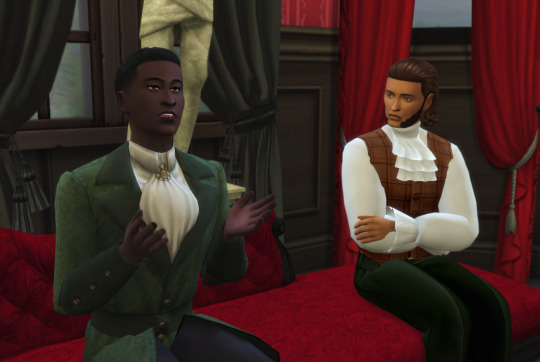
Lord Crumplebottom: All I want to know is how I can protect my family. I'm sure it won't be long until the rebels target the wealthy.
Mortimer: Bah! I wouldn't be concerned about that. I have yet to see them even think about such a thing!
Lord Crumplebottom: But they are preparing, so we must be prepared! Your soldiers can only make them fear you so much. It's becoming less effective. Plus, you can't contain them all!
Lord Landgraab: And why not?
Lord Crumplebottom: Because not every poor is a rebel. Some are our farmers and maids and still want to work! We can't keep them from their service. Do you expect us to tend to the crops, chores and the children?

Lord Landgraab: Needn't you worry about my soldiers. They have strict orders and can identify who is and is not apart of this abomination. What we need to focus on is funding more weapons.
Mortimer: More? But we've just acquired a large shipment from Vernick and Viridis! Not to mention Druzar. We cannot ask for more aid. I'm afraid our enemy countries might catch on and begin aiding to the rebels. I'm sure Whitmore, Armorica, Trenton and Pierreland would all love to see us fall.
Lord Landgraab: Afraid? Since when are you afraid, Morty? We must show strength at a time like this! We can't finally start our plan to conquer other nations if all our weapons are tied up in some civil war! Certainly, you can use your connections with Druzar to ask for more.
Mortimer: Absolutely not. My sister may be the Queen, but the more I use her, the weaker I and Pendula View looks in her eyes. And therefore, in the King's. We need to be strategic about using them to our advantage.
Lord Crumplebottom: Did you say civil war? I knew we never should've gotten into this mess in the first place. You've pushed the peasants too far! My poor wife has just been beside herself worrying that the maid will leave her for the rebellion.
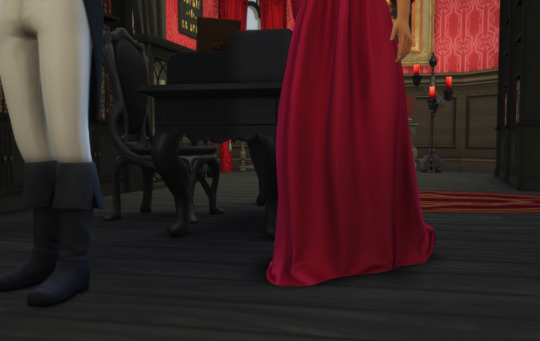
Footsteps approaching
Bella angry: That's enough!
The men all gasp
Bella angry: To think men the likes of you help lead this country! You sound no better than a woman with your whining and your inability to come to a resolution.
Lord Crumplebottom nervous: Y- Your Almighty Excellency, I-

Bella: I don't want to hear it! If your wife or others of the ton are so concerned about their help, do something regarding it! I don't care if you have to trap them on your property!
Lord Landgraab nervous: Your Almighty Excellency, there's no need-
Bella: Oh, there is indeed no need! No need for a general to ever question his King! If Mortimer says no more aid, then that is final. Make it work with what you have.
Lord Landgraab: Yes, Your Almighty Excellency.
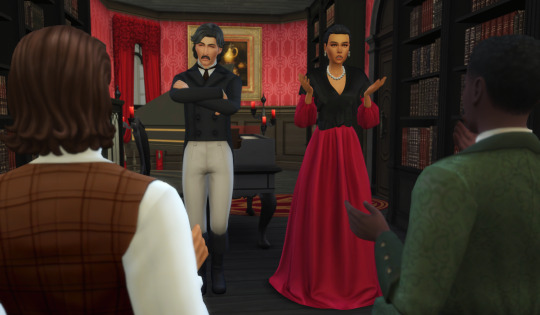
Bella: You men have one duty and that is to support my husband wholeheartedly! Especially with the ton. All this bickering is nonsensical and is of no use. We must act.
Mortimer: Thank you, my love. What would you suggest?
Bella: Well... as always, I try not to waste a frown on political matters and save that for you men. But it's obvious that what we're doing now isn't working. We can't just sit back and watch them form an army against us. If they want war, we have to give it to them.
Lord Landgraab: But, Your Almighty Excellency, our army is almost ready to move on Sulani. We shouldn't halt our plans for-
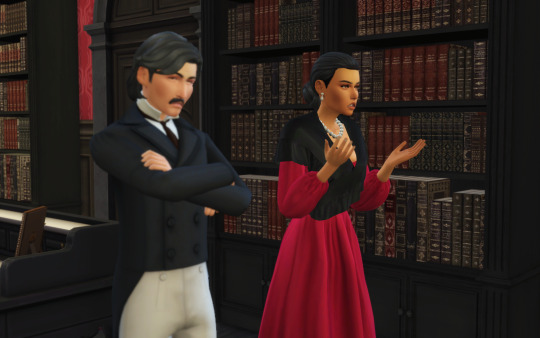
Bella: Good, if they're near ready than this will be perfect training. Take out the rebels, then get the army ready to march on Sulani.
Mortimer: A brilliant idea from a brilliant woman.
Bella: You lot make it so much harder than it is. Now, I must get to my stroll. All this thinking is simply not good for a woman! Good day, Gentlemen.

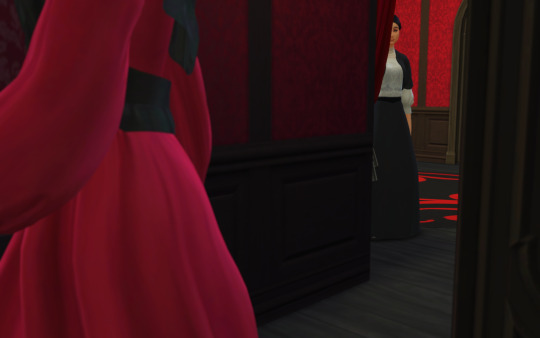
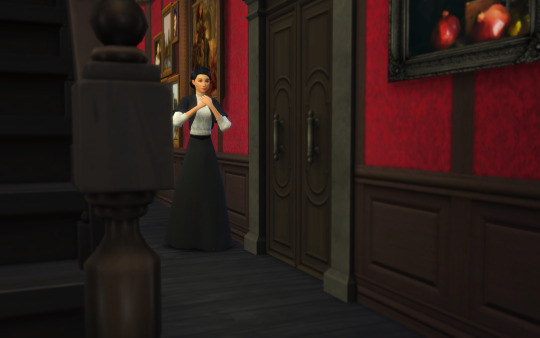
beginning | previous | next
Thanks for being apart of SimDonia history! @housekonig @royalmedani @trentonsimblr @whitmoreroyals @officalroyalsofpierreland @armoricaroyalty
#from the beginning#sims of color#sims 4 story#sims 4 gameplay#ts4#royal sims#royal simblr#historical sims#Cassandra is shook#aren't we all??#look at all these ties between countries#love it
30 notes
·
View notes
Note
Hey now how could you say such nasty things about the show? Don't you realise how important it is for lgbt representation? I bet you're some bigoted neckbeard!
Go back to your jumping pixels on the ps2 and leave us alone you gatekeeper!>:(
I know you joke and all, but it's honestly baffling to me how NFCV (and esp Nocturne) got the reputation of being woke because of one (1) bi threesome, when it's shockingly bigoted itself.
Wallachians are depicted as backward hillibillies brainwashed by the Church and engaging in bestiality: classism and xenophobia due to them being Eastern European, plus a general shallow caricature of history.
Alucard mocks the Belmonts by accusing them of being "mentally ill hoarders" and engaging in pagan rituals such as sacrificing chickens and mummifying cats: ableism and xenophobia, not helped by the fact that he's technically a nobleman looking down on common people (so classism).
Trevor is an alcoholic because of genuine childhood trauma. He's constantly mocked by other characters (and even the fucking music sometimes), he's pushed aside in favor of Alucard who is the first person who disrespects him, and eventually ditched by his own story.
Carmilla, the quintessential lesbian vampire in popular culture, jokes about being willing to fuck Godbrand only if all the men, half of the women and some of the animals dropped dead: equates having sex with women with having sex with animals.
Isaac's backstory is being a slave owned by a Catholic priest, so historically inaccurate that it can only come from the preconception that black people can only exist in Europe as slaves.
Isaac is a self-professed Muslim man who gleefully worships a demonic creature and agrees with his idea of killing "impure" people for a superior mission, justifying his sins by misquoting the Quran. His hypocrisy is never pointed out, and we're meant to admire him all the way through. I cannot make this shit up.
The generals in Dracula's court come from all over the world, with prominent Indian and Chinese vampires, but they are literally props only there to pretend the world is bigger than it actually is: the focus is given to two white Northern European vampires, Godbrand and especially Carmilla.
Striga and Morana are the laziest form of lesbian representation you could possibly have, literally Disney level of "seventh first gay character".
Alucard got "revealed" as bi in a tweet as if to reassure us that no, he wasn't raped, he enjoyed it! Pure biphobia.
Hector's whole story in S3 and 4 is disgusting rape apologism stemming from sexism, both against men (men are inherently horny and they cannot get sexually traumatized) and against women (women are never a threat and everything they do is inherently titillating).
Vampires, unholy creatures who can only exist by causing harm to humans, are treated as if they were their own separate race, and as if the Belmonts are committing ethnic cleansing against them. Case in point, Alucard being such a cunt to Trevor because oh no, his ancestors killed vampire children and kept their skulls in their hold! As if "vampire children" would be anything else than a cursed existence. (and never forget about the "cabal of vampires" controlling the slave trade in Nocturne, or how in that show vampires are the literal ruling class to be crushed by the revolution.)
oh but game isaac is offensive because he looks like a bdsm stripper or stuff. sure whatever.
At least Nocturne had the decency of fleshing out its gay couple. Yay, progress.
#anti netflixvania#i honestly wonder if the people who profess their love for the show have ever rewatched it#it's impossible to rewatch it and not notice how fucked everything is
41 notes
·
View notes
Text
Certainly, Dorothy Van Laar should have imagined that the Revolution would have changed her life. With a number of her brothers serving as Royal officers in the British Army and all of her sisters marrying into English nobility, she should have known that the question of American independence from England’s mother stem would greatly impact her. However, on her aunt and uncle’s farm in New Haven, she had thought that the “Revolution” would never come to her doorstep. She was convinced that powerful men behind heavy closed doors would make all of the decisions. Certainly, she did not think that her aged uncle would be considering joining Rebel forces. Nor did she imagine that her parents would be attempting to force her to come home.
For the past four years, Dorothy had lived away from her parents in York City. Her parents had been vexed and exhausted by their youngest child, a girl who seemed to derive more pleasure from banging the keys on the piano and playing pranks on her sisters’ suitors than in sitting quietly while mending socks. Dorothy talked frequently, and rather loudly, about the books she stole from her brothers and father and the growing ire of the colonies at the Crown. Plus, she seemed to be uninterested in things like dancing or embroidering. However, despite her parents’ attempts to correct her (and great attempts were certainly made), she seemed to be incapable of change.
At the end of their ropes, the Van Laars finally sent her to live with her uncle Asher in Connecticut. Asher Neethling, the brother of her mother, had always been considered rather odd by his family. Having decided to turn away from his family’s wealth and status as a “knickerbocker” family in York City, he had found comfort in learning. After receiving his ordination, he had married the daughter of a professor at Yale, then becoming a professor himself after his father-in-law’s retirement. At Yale, he enjoyed losing himself in books and being able to maintain a small farm with his wife. Asher seemed to be the only person Dorothy truly listened to or respected.
Soon after arriving in New Haven, Dorothy found that the change in pace suited her. She enjoyed working outside, mostly alongside her aunt, and caring for Asher and Caroline’s various animals. Soon after her arrival, she had begun to train the foal of one of her uncle’s most prized horses. Plus, her aunt and uncle seemed to enjoy her intellectual curiosity. Often, her aunt and uncle hosted various students of her uncle’s. A young man who was seemingly a fixture at the Neethling’s home was named Benjamin Tallmadge. Soon, Dorothy began to harbor a small crush on the man. He was smart and kind, his stories of his friends from his home in Setauket were charming to her. After he had graduated and moved to Wethersfield, he still maintained close contact with the family.
By the summer of 1776, it was certain that the colonies were involved in a war. Benjamin, done up in a gorgeous uniform of blue and gold, had briefly visited Asher. Though they had spoken in the parlor when Dorothy was supposed to be attending to her chores, she had been able to eavesdrop on the two. The young Tallmadge urged her uncle to join the war effort in any way he could, an idea that seemingly consumed Asher in the coming months. Increasingly, he became interested in enlisting in the Army. Certainly, the idea terrified Dorothy.
One evening, after Asher had received a concerning letter from a friend whose fields had been burned by British soldiers, the old man declared his intentions to join up by week’s end. This had followed a series of letters from her parents requesting that Asher sent the eighteen-year-old girl home, the two seemingly worried about Asher’s “Revolutionary” influence on her. That night, Dorothy was unable to sleep. She had been considering helping the war effort in her own way. Certainly, she wanted to do something more than knit socks. Silently, she took some of her uncle’s old clothes and his rifle, quietly changing and pulling his too-big boots on her feet. Before she slipped out of the house, she cut her long copper hair to hang around her shoulders. Then, she lead her horse, who had grown strong, away from the house.
After some days, she finally was able to enlist. When her training, abbreviated due to the war, was done, she was miraculously granted a position within the dragoons. Though, her excitement at being able to conceal her identity was deflated when she was told she would be under Captain Tallmadge. After arriving in camp, she was anxious about meeting Benjamin once again. Would see through her disguise, her claims to be a David Neethling from a small town near New Haven? What if he did catch her? Would she be thrown out of the Army?
After some days of flying under the radar, she was finally called to meet her commander. Standing outside of his tent, hair concealed mostly by a shining brass helmet, she could not help but worry. A sickly feeling made her throat feel hot and she was certain she would soon faint.
@honorhearted
11 notes
·
View notes